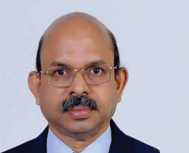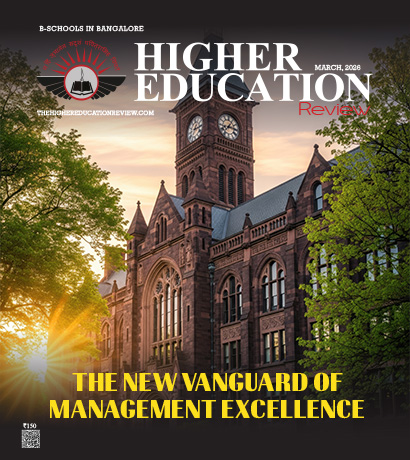Perils of Higher Education in India
 India is renowned from medieval times for the wisdom and advances made in the in semination of knowledge. How ever, recent statistics indicate that the Indian Higher Education is not oriented towards the right direction, which onelogically expects from a nation, which has risen from the long periods of invasion by other countries. One should not forget that, even as our democracy is nearing its diamond jubilee, India isstill a developing nation. The Governmentof India, right from the postindependenceera had visualised theneed of promoting and strengthening the higher education sector. And the great political leaders of that era hadthe vision to attract Indian intelligents a, trained abroad, to the nation tocontribute directly to the prosperity of the common man. This article mainly focuses on how we can leverage morefrom the past achievements and effortsby the great Indian visionaries there by evolve into a scientifically oriented, technically sound and ethically responsive society.
India is renowned from medieval times for the wisdom and advances made in the in semination of knowledge. How ever, recent statistics indicate that the Indian Higher Education is not oriented towards the right direction, which onelogically expects from a nation, which has risen from the long periods of invasion by other countries. One should not forget that, even as our democracy is nearing its diamond jubilee, India isstill a developing nation. The Governmentof India, right from the postindependenceera had visualised theneed of promoting and strengthening the higher education sector. And the great political leaders of that era hadthe vision to attract Indian intelligents a, trained abroad, to the nation tocontribute directly to the prosperity of the common man. This article mainly focuses on how we can leverage morefrom the past achievements and effortsby the great Indian visionaries there by evolve into a scientifically oriented, technically sound and ethically responsive society.
It is a well-established fact thatexcept in space science and technology/atomic energy India lag far behindother nations. It is imperative that the problems and prospects ofIndian higher education system shouldbe subjected to proper screening andreview by all stake holders. The political leadership of the post independenter a had shown the might to invite and sustain, PIO with exceptional talentto return to India, by offering suitable positions they deserve, commensuratewith their training abroad. Prof C.V.Raman, Dr Vikram Sarabhai, Dr HomiJ.Bhaba, Prof M.G.K.Menon and Prof E.K.Janaki Ammal are just a few examplesfrom the past. There are also greatIndian minds like Prof Thomas Kailath,Prof. Jayant Baliga ('man with the largest, negative carbon footprint'), ProfS.Chandrasekhar and Prof. V. Ramakrishnanand others who earned gloryto India working abroad.
Higher education can be impartedproperly only if the students do have astrong foundation of primary skills—listening, reading, and writing. A recent NASSCOM study indicated that amere 15-20 percent of the engineeringgraduates in the country are empowered to take up the profession ofa practising engineer. Another fact tobe noted is that the number/percentageof students who actually graduateat the end of academic tenure is alarmingly low. The reasons for mass failuresand ill-qualified graduates coming outof the colleges is the lack of properchecking mechanisms to control thequality of students—the reasons arelack of motivation of the students,peer pressure on the parents from the society, and to some extent the greedto earn 'fast money' and eagerness toreach the higher echelons of the societyby fair means or foul. The whole education system is now 'market-pushed'rather than 'demand-pulled'. It is quitenatural that any thing that is being pushed into the 'system' can cause cloggingand reduce quality and efficiency. The proliferation of business orientedhigher educational institutions is to becurtailed by the government/statutory bodies like AICTE, AIMC, AICME, AICA and so on. It is heartening to notethat this has been meticulously done bythe central government for the past few years.
The teacher-centric learning model followed by the old schools of higher education is no longer relevant/effective in today's educational systems, asthere are several sources of interference(abuse of mobile phones, etc),shortened attention span, and aboveall lack of properly trained faculty. Itis also observed that excessive student politicking existing in government controlled institutes, also leads to loss of contact hours in classrooms which results in students not being properly exposed to the contents in the syllabi and beyond. This may lead to graduating without the expected value addition. Another concern is the lack oflanguage skills—ability to read, write and speak cohesively in a foreign language, English. The steps were taken by the Chinese to address this lacuna with the help of the British Council, and Oxford and Cambridge Universitiesis worthwhile. Some of the Indian universities have noted this deficiency and have taken remedial measures includingthe above-mentioned collaborations in teaching English as a non-native language. In a similar manner, higherinstitutes of learning should also impart special training indeveloping soft skills of all students and also give creditsfor societal work, and to activities that imbibe a sense ofresponsibility and volunteering to give back to the nation,that has been assigned to NSS.
The remedies to the perils of Indian higher education are four-pronged—the students should be motivated to feel that they can contribute creatively to the society, if they choose a program and subsequently a profession according to their latent talents/interests, rather than pushed-in to thesystem by the peer/parental pressure. The learned and experienced teachers and career gurus can play a significant role in this. The parents are also should be able to judge the capabilities(skill set and interests) of their wards and never force their children to select a program. The selection tests through a single entry, like the newly introduced NEET and the proposed NETE (National Eligibility Test in Engineering) from the academic year 2018 onwards is arguably the best option. One should also think of giving training to the true sons and daughters of the soil, who are not that affluent socially and economically so that they fare well in the highly competitivenational level examinations. The policy makers should makeit a point to reward excellence at all levels and for all players(faculty, students and managements) and take punitive actionfor corrupt practices.
The teachers should act as real eye-openers to their pupils. The good teachers must play multiple roles concurrently-that of a friend, parent, mentor/benefactor and sometimes that ofa philosopher. Remember this Sanskritic verse, "yadha guru,thadha sishya", which translates to: "a student is just like the learned teacher". The research organisations/corporates also have a role in revitalising the curricula and syllab i to make the graduates distinguishably employable. The policy makers should support to gear the entire educational system towards new models of a student-centric classroom and learning teaching process. The elected governments should also riseto the need of the hour so that all educational institutional institutions across the country are made free of politicking.The electorate should vote only in favour of the right kind of politicians so that the long-term interests of the nation are given top priority.
We should also look at possibilities of attracting global talent pool in the education sector to India on a mutually beneficial manner. In return, we can also think of developing global collaboration and acceptance by entering into partnerships. Since all educational systems are poised towards inclusiveness and equity globally, India as a nation cannot remain a silo in a fully connected, all pervasive highly competitive world. I would like to end this note with two very well known quotes--one by the father of the nation: a man of character will make himself worthy of any position he is given, which should be the driving force of all stakeholders. The second one by our people's President, Dr APJ Abdul Kalam is equally apt to the student community: you see, God help only people who workhard; that principle is very simple.

